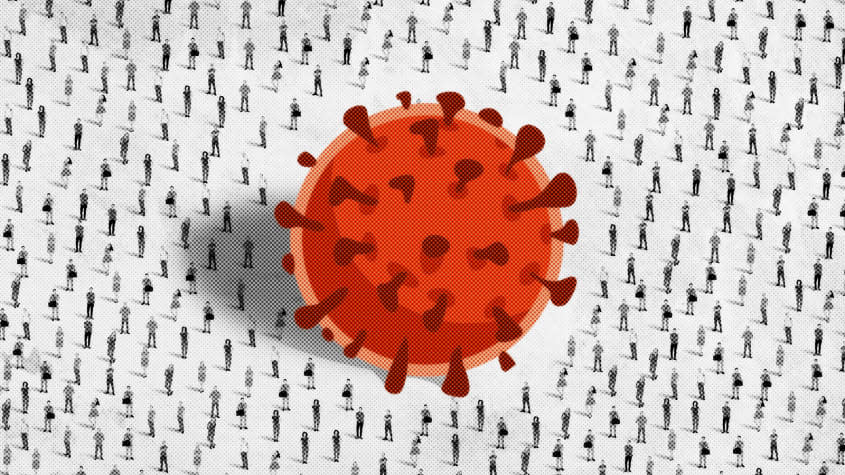The kind of COVID-19 herd immunity we can realistically expect

- Oops!Something went wrong.Please try again later.
How does the COVID-19 pandemic end? A lot of public health rhetoric suggests the goal is what has sometimes been dubbed "COVID zero." When we talk about "stopping the spread," for instance, we envision a scenario where the virus dies out among the general population because each infected person is unable to transmit the disease either by encountering no one or encountering only immune people.
It is possible to end communicable illness this way. That's what we did with smallpox worldwide and polio in the Americas with vaccine-induced herd immunity. Other illnesses, like measles, which we commonly vaccinate against, aren't quite eradicated, but outbreaks are rare and serious illness among the vaccinated even rarer.
But it increasingly doesn't seem like that's the path COVID-19 will take, even if we get at or near total vaccine adoption. What looks more likely now — and what public health experts are increasingly acknowledging — is that COVID-19 will become an endemic illness, something that is always with us and which immunity dramatically mitigates but never eliminates. The idea, as Harvard immunologist Yonatan Grad has explained, is that "enough people [would] gain immune protection from vaccination and from natural infection such that there [would] be less transmission and much less COVID-19-related hospitalization and death, even as the virus continues to circulate."
If that's where we're headed, we shouldn't expect to categorically stop the spread like we did with smallpox-style or measles-style herd immunity. We should anticipate herd immunity more like what we have for the common cold: Our bodies are almost always competent to fight the illness, and the typical risk it poses is annoyance or a few days in bed.
Indeed, for our children and later generations who grow up among endemic COVID-19, it's possible the novel coronavirus will join the other four coronaviruses as a common cold pathogen. It may become something everyone catches somewhat regularly, beginning in childhood, when risk is low, and building immunity for older years, when risk would otherwise be higher. (Here's a paper at Science which explains how that could work.)
In that case, the people who say COVID-19 is "just a cold" now are wrong, because getting exposed for the first time when you're older is dangerous. But 50 years from now, when everyone is exposed as children, it may indeed be just a cold, perhaps indistinguishable from any other cold.
If that's the kind of herd immunity we should expect, discussions like this one with National Institute of Allergy and Infectious Diseases chief Anthony Fauci are significantly misleading and off-target. In that clip, Fauci talks about measles-style herd immunity, but what if common cold-style herd immunity is what's actually in the cards? Aiming for an impossibility won't make good policy.
You may also like
Actor suspected of participating in Capitol attack arrested in California
CIA director reportedly holds secret meeting with Taliban leader Abdul Ghani Baradar

